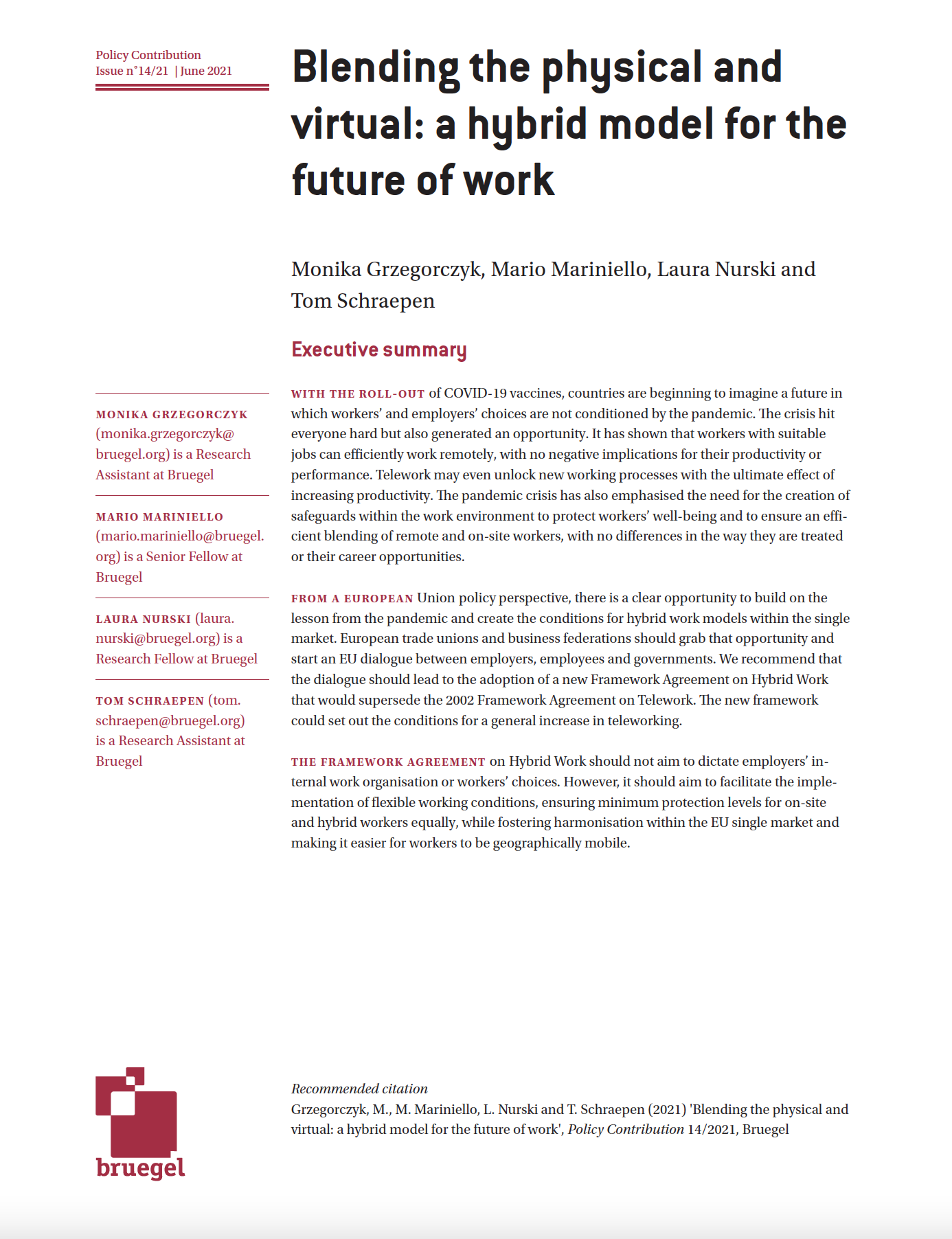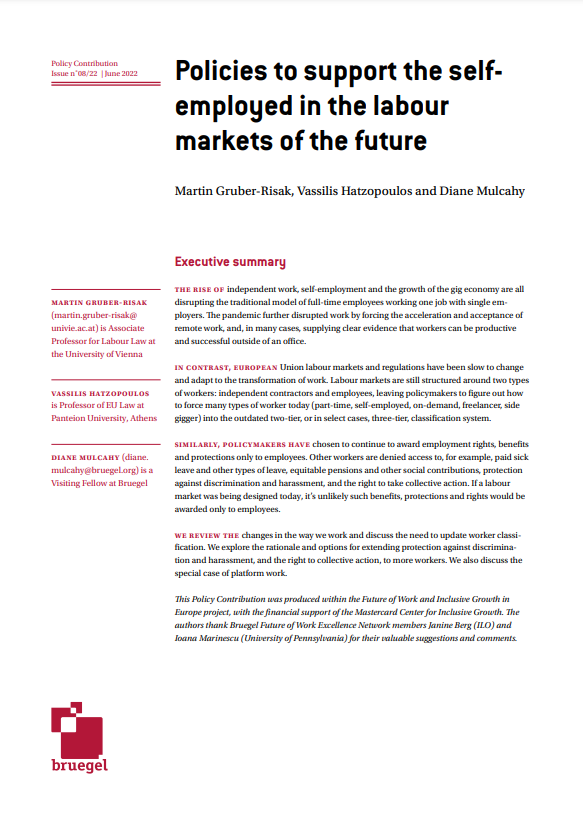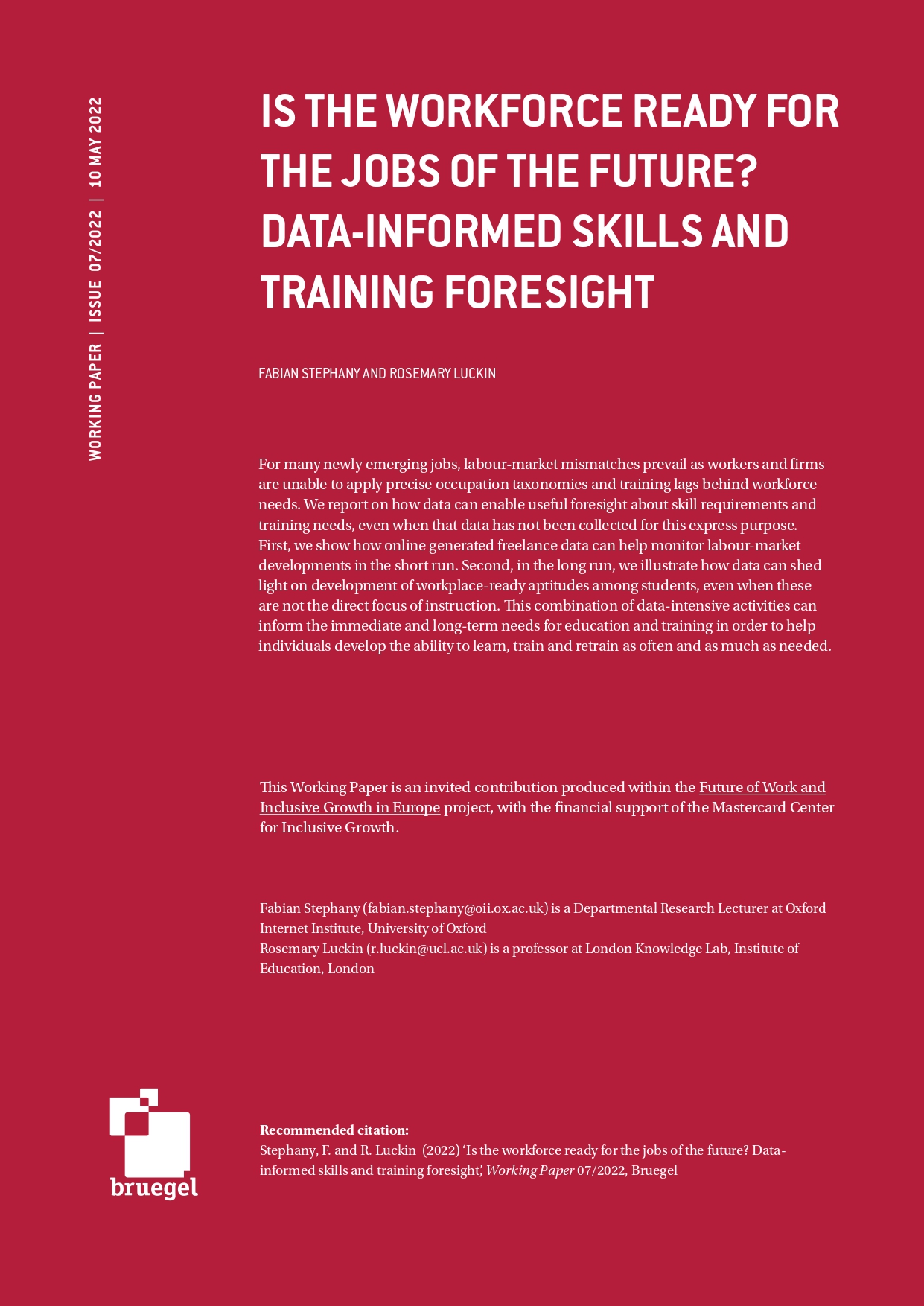Policy Contribution
Blending the physical and virtual: a hybrid model for the future of work
The pandemic has shown that many workers can efficiently work remotely, with benefits for wellbeing and even productivity. The European Union should develop a framework to facilitate hybrid work.
Executive summary
With the roll-out of COVID-19 vaccines, countries are beginning to imagine a future in which workers’ and employers’ choices are not conditioned by the pandemic. The crisis hit everyone hard but also generated an opportunity. It has shown that workers with suitable jobs can efficiently work remotely, with no negative implications for their productivity or performance. Telework may even unlock new working processes with the ultimate effect of increasing productivity. The pandemic crisis has also emphasised the need for the creation of safeguards within the work environment to protect workers’ well-being and to ensure an efficient blending of remote and on-site workers, with no differences in the way they are treated or their career opportunities.
From a European Union policy perspective, there is a clear opportunity to build on the lesson from the pandemic and create the conditions for hybrid work models within the single market. European trade unions and business federations should grab that opportunity and start an EU dialogue between employers, employees and governments. We recommend that the dialogue should lead to the adoption of a new Framework Agreement on Hybrid Work that would supersede the 2002 Framework Agreement on Telework. The new framework could set out the conditions for a general increase in teleworking.
The Framework Agreement on Hybrid Work should not aim to dictate employers’ internal work organisation or workers’ choices. However, it should aim to facilitate the implementation of flexible working conditions, ensuring minimum protection levels for on-site and hybrid workers equally, while fostering harmonisation within the EU single market and making it easier for workers to be geographically mobile.
Recommended citation
Grzegorczyk, M., M. Mariniello, L. Nurski and T. Schraepen (2021) ‘Blending the physical and virtual: a hybrid model for the future of work’, Policy Contribution 14/2021, Bruegel
This policy contribution was produced within the project “Future of Work and Inclusive Growth in Europe“, with the financial support of the Mastercard Center for Inclusive Growth.







